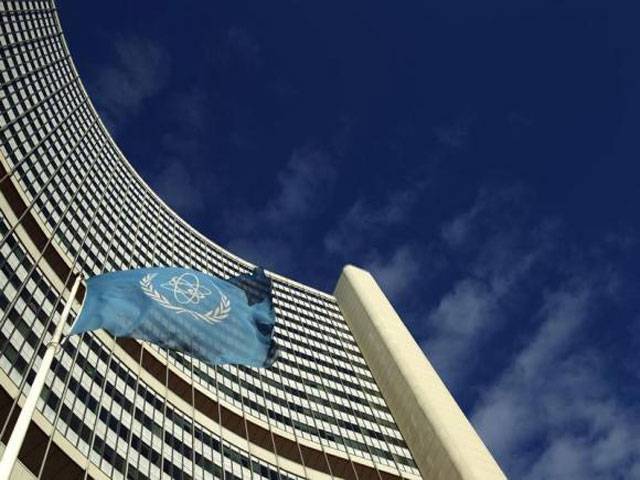The U.N. nuclear watchdog said on Tuesday a planned meeting with Iran next week to discuss steps meant to ease concerns over its nuclear program has been pushed back to February 8 at Tehran's request.
The International Atomic Energy Agency did not say why Tehran asked for a delay. But the original date, January 21, is just a day after Iran and big powers are to start implementing an interim deal on curbing Iranian nuclear activity, suggesting a busy agenda in coming days may have led to the postponement.
The IAEA has been tasked with checking that Iran carries out its end of the six-month preliminary accord, so the U.N. agency is also facing an extra workload.
The IAEA-Iran negotiations that have now been postponed are separate from - albeit still closely aligned with - broader, high-level diplomacy between Tehran and six world powers over Iran's nuclear program.
In November, Iran and the IAEA struck a cooperation pact, including six initial steps to be taken by Tehran over the following three months, entailing access to two nuclear-related facilities and the provision of information.
They said after a review meeting last month they would meet again in Tehran on January 21 to discuss the next steps under the framework agreement.
Western diplomats say those measures may be increasingly difficult to negotiate, as the IAEA has made clear it wants to resume a long-blocked investigation into what it calls the possible military dimensions to Iran's nuclear program.
IAEA spokeswoman Gill Tudor confirmed that the date of the meeting had been changed and that "this was at Iran's request". There was no immediate comment from Iran's IAEA mission.
The IAEA wants Iran to address allegations that it has researched how to develop a nuclear bomb, a charge Iran denies.
The Islamic Republic says its nuclear energy program is wholly peaceful. But it concealed sensitive activity from IAEA inspectors in the past, stoking suspicions abroad.
PACT BETWEEN IRAN, BIG POWERS TO TAKE EFFECT JAN. 20
Iran and the six powers - the United States, France, Germany, Britain, China and Russia - said on Sunday the implementation of their November 24 preliminary accord would begin on Monday. Iran agreed to scale back some activity of potential use in producing a nuclear bomb, in return for some easing of economic sanctions.
The IAEA will play a pivotal role in verifying that Iran fulfils its part of the bargain. A group of IAEA inspectors will travel to Iran on Saturday "to implement the first step" of the accord, Iran's Atomic Energy Organisation said.
The landmark agreement, nailed down after a decade-long standoff, appeared to stem a slide towards another Middle East war over Tehran's nuclear ambitions, although diplomats warn that mistrust remains so deep it will not be easy to implement.
The IAEA's 35-nation Board of Governors is to hold an extraordinary meeting on January 24 to discuss the extra work burden facing inspectors in monitoring the pact between Iran and the six states, diplomats said on Tuesday.
The IAEA has long inspected Iranian nuclear sites regularly to ensure no diversions of material for military purposes.
It will now both increase the frequency of such visits and examine additional sites including plants where Iran manufactures equipment for refining uranium.
Enriched uranium can fuel nuclear power plants or, if processed much further, nuclear bombs.
For its increased workload, the IAEA likely needs to send more inspectors to Iran. It has tentatively identified extra costs of some 5 million euros ($6.83 million), to be funded in part by voluntary member state contributions, diplomats said. ($1 = 0.7324 euros)
Friday, April 19, 2024
IAEA says Iran asked for nuclear talks postponement to February 8

Caption: IAEA says Iran asked for nuclear talks postponement to February 8
8:27 AM | April 19, 2024
8:09 AM | April 19, 2024
Opposition objects to oath-taking of MNAs amid lawlessness
5:15 PM | April 19, 2024
Electioneering to end on Friday night ahead of by-polls in 21 constituencies
5:14 PM | April 19, 2024
Fawad Chaudhry granted bail in 14 cases related to May 9 violence
5:13 PM | April 19, 2024
British Army chief lauds Pakistan Army's professionalism, expertise
5:12 PM | April 19, 2024
Israeli aircraft fire missiles at Air Force assets in Iran: Report
3:52 PM | April 19, 2024
A Tense Neighbourhood
April 19, 2024
Dubai Underwater
April 19, 2024
X Debate Continues
April 19, 2024
Hepatitis Challenge
April 18, 2024
IMF Predictions
April 18, 2024
Kite tragedy
April 19, 2024
Discipline dilemma
April 19, 2024
Urgent plea
April 19, 2024
Justice denied
April 18, 2024
AI dilemmas unveiled
April 18, 2024
ePaper - Nawaiwaqt
Advertisement
Nawaiwaqt Group | Copyright © 2024





